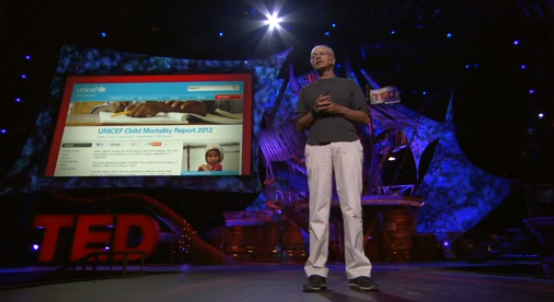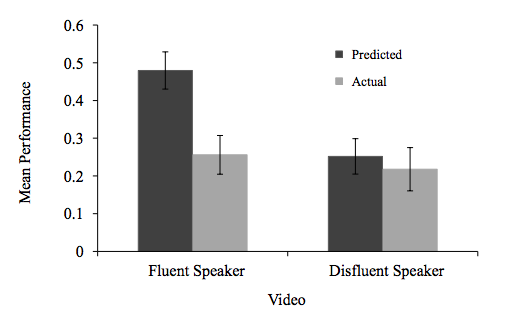from: http://priceonomics.com/is-this-why-ted-talks-seem-so-convincing/
The speakers at
TED conferences give the type of presentations that public speaking coaches use as examples of effective presentation skills. They open with arresting images or stories that engage the audience, speak clearly and passionately, and illustrate each of their points with concise evidence or examples.
TED Talks are also slick productions. The lighting is as well done as a rock concert’s, cameras film from a variety of angles to keep viewers visually engaged, and the length is never so long as to drain an audience’s attention span.
At the end of a TED talk, this author often feels inspired and enlightened, patting himself on the back for spending 10 minutes improving his mind instead of watching sitcom reruns. But according to a study performed by a group of psychologists, the degree to which a TED audience feels newly educated may be partly illusory - the result of showmanship as much as actual learning.
In their study
“Appearances Can Be Deceiving,” a team of psychologists had students watch recorded lectures explaining why
Calico cats are almost always female. (It's essentially a genetics lesson, as the answer has to do with how the calico fur pattern is linked to X chromosomes.) One group saw a lecturer who presented with the skills of a TED speaker. The other watched the lecturer read haltingly from notes.
Afterwards the students answered questions about how much they felt they had learned. As expected, students who had watched the lecturer with better presentation skills expected to remember more of the material, believed that they understood the material better, and rated their interest and motivation more highly than the students who watched the dud instructor.
The twist came when the students took a test that investigated their memory and understanding of the Calico cats concept. The students who watched the skillful (or “fluent”) lecturer barely outperformed the students who watched the “disfluent speaker.” But they did much poorer than they expected to do, whereas the other group did about as well as they expected.
The lesson to take away is probably not that presentation skills don’t matter in teaching. The study only looked at one concept of medium difficulty presented in a single recorded lecture. But it does suggest that the confidence and fluidity of a skillful presenter can lead us to be overconfident in our predictions of how much we learned and how easily we can understand the concept being explained. Implicitly, a savvy presentation sells you on the idea that you've learned a lot as much as it actually informs you.
So the next time you watch a TED Talk, ask yourself whether you can explain the concept clearly, and whether its logic holds up outside the nice lighting and well-timed applause. It’s all too easy to be carried away by a skillful presentation into believing that you’ve learned more than you really have.

